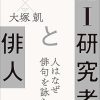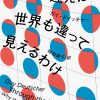“Future Direction of Tourism Policy Studies” President of Human Logistics & Tourism Laboratory Teramae Shuichi, PhD
公開日:
:
最終更新日:2023/05/28
人口、地域、
Future Direction of Tourism Policy Studies
~Encounter of Japanese word“観光”and English word“tourist” ~
TERAMAE Shuichi PhD
Keyword: Human logistics, third-party, the tourist culture gene
“Tourist” concept generated with the popularization of travel. In that case, in Japan, it would be the Edo period in the 18th century when the phenomenon of “Visit Ise Shrine” occured. While the concept was born, the lexical representing it had not been unified. Also its social need was small. If the “sightseeing people” had been used as a lexical representing the concept, there was no confusion. But in Japan, it began to converge in a special lexical “people watching country’s light “.
In Japan, foreign currency acquisition policy had been launched as an important policy in around 1930. International Tourism Bureau (formal English name was “Board of Tourist Industry”) for the attraction of foreign tourists was installed, and then trade bureau for the export promotion was installed. National Treasure Preservation Act and the National Parks Law were enacted for foreigners. By the government adopted the lexical “watching country’s light”, the concept “tourism” is rapidly began to converge on the lexical” watching country’s light “. Through the Asahi Shimbun and the Yomiuri Shimbun article data analysis, it is demonstrated. Ministry of Railways had been described as the etymology of the lexical ” watching country’s light “, which was the I Ching Chinese classical. Its Original interpretation means “outbound”. However, the Ministry of Railways was used by the meaning of “inbound”. I Ching describes as “going to watch the light of the country.” This country in this case, in ancient China meant a fort city. This influence, in Japan, lexical ” watching country’s light ” has been used as those with cross-border concept.
For International tourism policy of the Ministry of Railways, foreign currency acquisition was an object. However, it was decided to show the attitude of “show the imperial Japanese culture” to foreigners. With tourism advertising business overseas, tourist facilities for foreigners in Japan had been developed. Initially, tourist facilities were easily classified between Japanese and foreigners. However, gradually along with the Westernization of Japanese life, distinction became thinner. The tourist facilities became to be for Japanese tourists in the real intention. Therefore, the policy of local government and local tourism association was referred to as the “inner main outside subordinate”. However, under the quasi-war footing, lexical “watching country’s light ” did not appear in front. On the basis of welfare administration, the lexical “recreation” and “rest” had been used. This effect was continued even after the war policy. After the end of the war, the acquisition of foreign currency was a national policy, the development of tourism road was carried out for the acquisition of foreign currency. While hotel administration, national park administration and spa administration were done by Ministry of Health and Welfare, the lexical “watching country’s light” was not used.
In the 21st century, Japan entered the population decline society. To expand the exchange population became the existence value of the municipality. Acquisition of foreign currency disappeared from the purpose of the Tourism Nation Promotion Basic Law. Its purpose is “to show the pride of the region”. Saeki Muneyoshi, the founder of Kurobe Alpine Route insisted that Tourism was to show the differences between other regions. On the other hand, the “Policy” is a power act in order to eliminate the differences between people. Of course, between “tourist” and “policy”, there is internal dissonance.
In Japanese transport law system, the distinction between daily transport and non-daily transport has disappeared through deregulation policy. In addition, over the policy in general, relative phenomenon of daily and non-daily has occurred. Social sense to divide the only movement for tourism is gone.So, I have proposed the human logistics concept. As well as physical logistics concept, this concept is easy to correspond to the third-party concept being newly developed.
Through location information by smart-phone, it is made to allow the big data analysis of human logistics information. Moreover, through progress in wearable devices, it would become to be possible to grasp the body and the brain reaction against tourism resource in real time. The deployment of the future of regional tourism policy research, with the help of a wearable device, or would not exist at that to discover the tourist culture gene.
関連記事
-

-
文化人類学で読み解く北朝鮮社会 伊藤亜人 公研 2017年10月号No.650
韓国人がなぜ、国内海外を含めてあれほど旅行をするのか考えていたが、一つの答えが見つかったような気がす
-

-
旅資料 安田純平『ルポ 戦場出稼ぎ労働者』集英社新書
p.254「戦火のイラクに滞在し、現地の人々の置かれた状況を考えれば自分の拘束などどういうことでも
-

-
新華網日本語版で見つけた記事
湖南省で保存状態の良い明・清代の建築群が発見 http://jp.xinhuanet.com/20
-

-
『「食べること」の進化史』石川伸一著 フードツーリズム研究者には必読の耳の痛い書
食べ物はメディアである 予測は難しい 無人オフィスもサイバー観光もリアルを凌駕できていない
-

-
自動運転車の普及が、タクシー業やビジネスホテルに与える影響論議 早晩、稼業としての存続はなくなる
『公研』2018.12.No.664の江田健二氏と大場紀章氏の対談の
-

-
「今後の観光政策学の方向」 人流・観光研究所所長 観光学博士 寺前秀一
① 旅が大衆化すると「Tourist」概念が生まれるのだとすると、日本における「
-

-
『不平等生成メカニズムの解明』「移民はどのようにして成功するのか」竹中歩・石田賢示・中室牧子
「移民はどのようにして成功するのか」竹中歩・石田賢示・中室牧子『不平等生成メカニズムの解明』ミネルバ
-

-
ジャパンナウ観光情報協会原稿 2020年3月 コロナウィルスと人流規制
コロナウィルス騒動の中、旅行先のサンサルバドル空港では空港レストラン職員もマスクをしていた。入管係
-

-
満州の中国化 中国東北部の民族構成の歴史的推移
高媛氏の『観光の政治学』の主要テーマがホスト(中国人)、代理ホスト(在満日本人)、ゲスト(外国人)が


